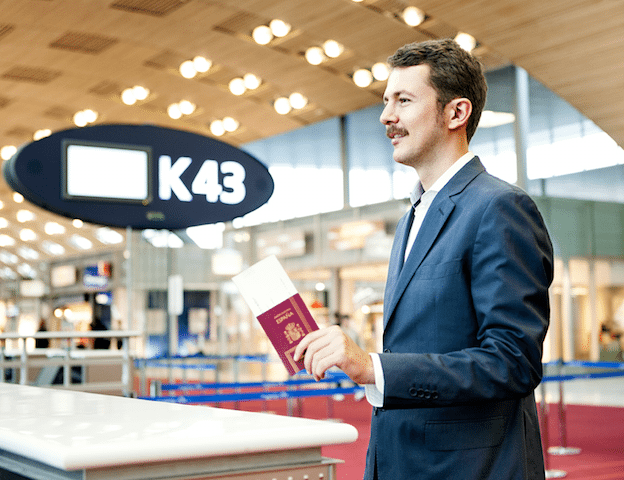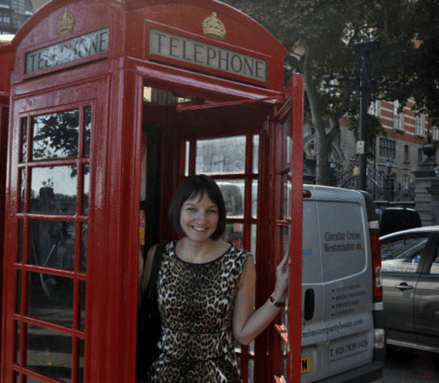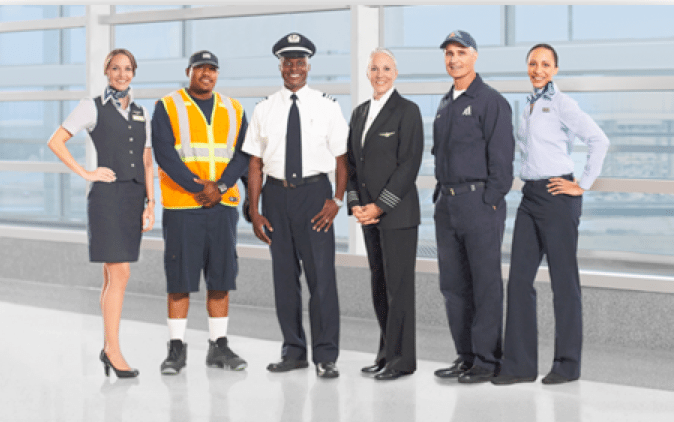Fake It ‘Til You Make It: How to Sound Like a Seasoned Air Traveler (Even If You’re Not!)
Signing up for credit cards through partner links earns us a commission. Terms apply to the offers listed on this page. Here’s our full advertising policy: How we make money.
Don’t forget to follow me on Facebook or Twitter!
From experienced world travelers to those completely new at the miles and points game, we all like to sound like we know what we’re doing when speaking with airline reservations or airport agents.
In my experience, folks often get much better service and results when airline employees know they’re seasoned travelers. If you sound like you know the ins and outs of the industry, you’re more likely to get what you want (as long as you’re polite!). 🙂
But how can you let agents know you’re a pro and not a complete newbie? I enlisted the help of some airline friends to find out.

Pro Tip #1: Use the ICAO Phonetic Alphabet
Link: ICAO Phonetic Alphabet
The International Civil Aviation Organization (ICAO) has assigned code words to the letters of the English language. This is to simplify communications over radio and telephone, especially between people who speak different languages.
For example, if you’re spelling a name over the phone, the letters “B” and “P” can sound awfully similar, especially if you don’t speak English. It can cause a lot of confusion. You’ll hear regular folks try to clarify by saying things like “B as in Bob” or “P as in Paul.”

To keep things standardized worldwide, pilots, air traffic controllers, and airline employees (along with military and other organizations that use radio transmissions frequently) have adopted the ICAO Phonetic Alphabet when spelling out names or otherwise saying letters of the alphabet over the phone or radio.
Here’s the alphabet:
- Alfa (or Alpha)
- Bravo
- Charlie
- Delta
- Echo
- Foxtrot
- Golf
- Hotel
- India
- Juliet (or Juliett)
- Kilo
- Lima
- Mike
- November
- Oscar
- Papa
- Quebec
- Romeo
- Sierra
- Tango
- Uniform
- Victor
- Whiskey
- X-Ray
- Yankee
- Zulu
If you use the phonetic alphabet (for example, when spelling your name or giving your reservation number) with an airline agent, you’ll give the signal that you’ve been around aviation or the military for a while!
For example, if I were spelling my name (which gets misspelled a lot) for an agent, I’d say “D as in Delta, A as in Alpha, R as in Romeo, A as in Alpha, I as in India, U as in Uniform, S as in Sierra.”
But I wouldn’t go out of my way to memorize these. Even saying “A as in Apple” or “D as in Dog” shows you have more experience than the average person.
Pro Tip #2: Talk Like an Airline Employee
If you use the same lingo that airline employees use, you’ll give off the vibe that you’re a frequent traveler. Airline employees like folks who know their stuff and don’t need their hand held. But use your discretion and don’t over-do this, otherwise you’ll come across as an aviation nerd! 😉

Here are some useful words and phrases you might want to incorporate into your travel lingo:
| Instead of Saying: | Say This! |
|---|---|
| Airplane | Aircraft |
| What kind of airplane are we flying? | What's the equipment? |
| Is the plane full? | What's the load today? |
| What's wrong with the plane? | Is it a mechanical? |
| Seat with extra legroom | Emergency exit row or bulkhead |
| Here's my reservation number | Here's my PNR |
| Coach class / Business Class / First Class | Y / J / F |
| When is the airplane arriving? | What's the ETA? |
| Cockpit / pilots / stewardesses | Flight deck / front-end crew / flight attendants |
Pro Tip #3: Be Professional and Polite
Air travel can be stressful at times because of schedule changes, mechanical problems, and difficult weather. Even if you’re unhappy, you’ll get the most help and consideration from airline employees if you are professional and polite.
Here’s a thought from an airline captain friend:
Generally, if passengers are seasoned then they are calm. They understand delays and things happen. So they just sit and read their book or whatever. The degree of “seasoned” is directly proportional to their calm. That’s my observation anyway.
So even if things aren’t going your way, try to stay cool. You’ll come across as far more professional (and be more likely to get the help you need) than the guy yelling and screaming because he’s in a middle seat or might miss his connection.
Bottom Line
Even if you’re new to air travel, there are ways to present yourself as a more experienced traveler. By using the phonetic alphabet or speaking like an airline employee, you’ll give the impression that you’re a frequent flyer. And airline folks like passengers who know what they’re doing!
But above all else, be calm and polite!
Editorial Note: We're the Million Mile Secrets team. And we're proud of our content, opinions and analysis, and of our reader's comments. These haven’t been reviewed, approved or endorsed by any of the airlines, hotels, or credit card issuers which we often write about. And that’s just how we like it! :)






Join the Discussion!